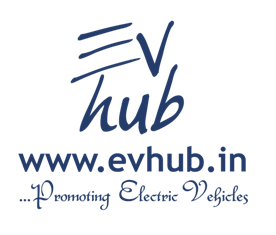Environmental groups and power companies are touting the benefits of emissions-free electric vehicles as a way to cut pollution in Texas.
But do electric vehicles, especially in Texas where much electricity is generated with coal, simply move emissions from the tailpipe to the smokestack?
"The electricity grid is a mix of generation technologies, some dirty and some clean. With electricity generation that tends toward dirtier feedstocks (like coal), you get fewer emissions benefits from electric vehicles," said Luke Tonachel, senior analyst at the Natural Resources Defense Council.
About 37 percent of Texas power comes from coal, according to July data from the Electric Reliability Council of Texas, the state's grid operator.
But even charged with power from dirtier sources, electric cars are cleaner than today's average vehicle and on par with the cleanest hybrids, Tonachel said.

2 comments:
Interesting post. I'll write about this in the future in my blog (http://green-and-energy.com/blog/). There is a lot of misunderstood around this.
I can give 3 quick answers:
- Can you provide me with the gCO2/kWh in your region? I can tell you then if NOW gasoline or diesel are better in terms of emissions than a EV
- think about this: It's not only CO2 what matters. Other emissions might be lower in a power plant than in cars (NOx)
- Only EVs have the potential to be emission free. Even if they are not better now, they have the potential to become better in the future.
bye
olmo
It's far more complicated than simply saying a ratio of electric power production types determines what actually powers your car. If one charges an EV in the middle of the night using "spinning reserves," that otherwise need to be discarded, most of the energy used to charge the car doesn't contribute to pollution any more than letting that electric power go to waste (more-or-less). The thermodynamics are slightly more complicated than that, but I won't get into that here. Simply put, it's not a 1:1 ratio.
And it's also far more complicated than saying the total emissions from gasoline/diesel are just what comes out of your tailpipe. Consider that Nissan has estimated that 7.5 kWh of electricity is used in the shipment and refining of oil and gasoline. The Nissan Leaf, which might get 30-35 mpg if powered by an appropriately sized gas engine, can go about 30 miles on that same electric power. One must also consider the pollution created in drilling, shipping oil, refining oil and transporting refined product (by both truck and pipeline) and even the electric used to pump fuel from the underground tank up to your vehicles tank. This is just an average, some places will be better than others. Some will be worse. For example, if you live in Tucson, AZ, where there is no refinery nearby, your fuel almost certainly comes from a pipeline that originates near ElPaso, TX (and likely gets to El Paso by a pipeline from even further away), a lot of electricity is needed to move fuel the hundreds of miles through a pipeline to your tank. FYI, electricity in AZ and NM is heavily reliant on coal, meaning that the gasoline put in a tank there is also heavily reliant on coal power and also some natural gas. Living in Houston may mean that it's less.
Yes, more electricity production may be needed (and yes, it may not always be clan), but it's probably less than you would think on the face of it.
Post a Comment